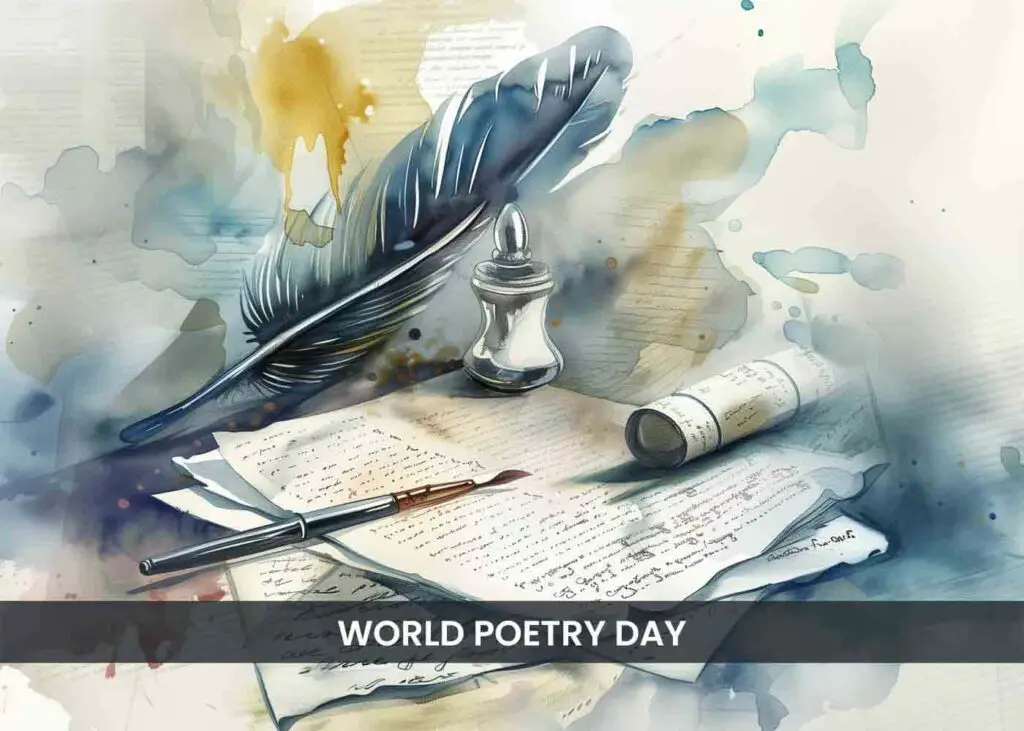
World Poetry Day: Celebrating the Universal Resonance of Verse
World Poetry Day, celebrated on March 21, is a significant observance organized by UNESCO. It is dedicated to honoring poetry, a form of expression that embodies the creative spirit of the human mind. The day encourages a return to the oral tradition of poetry recitals, promotes the teaching of poetry, supports small publishers, and creates a conducive environment for endangered languages.
The decision to proclaim March 21 as World Poetry Day was adopted during the 30th session of UNESCO in Paris in 1999. The date was chosen for its significance as the spring equinox in the Northern Hemisphere, a symbolic time of renewal. This day offers an opportunity to appreciate and support poets and poetry around the world. It aims to foster an understanding of poetry as an instrument of peace and dialogue among cultures.
Celebrating World Poetry Day contributes to the safeguarding of linguistic diversity and encourages a multitude of languages to be used for creative purposes. It underscores poetry’s role in preserving cultural identity and prompts young people to engage in the longstanding tradition of poetic expression. Poetry serves as both a profound art form and a communal experience that resonates across all levels of society.
1. World Poetry Day Significance and Observance
World Poetry Day celebrates poetry’s unique ability to capture the creative spirit of the human mind. It promotes the reading, writing, publishing, and teaching of poetry throughout the world.
Global Recognition and UNESCO’s Role
UNESCO (the United Nations Educational, Scientific and Cultural Organization) proclaimed March 21 as World Poetry Day during its 30th General Conference in Paris in 1999. This declaration was a recognition of the diverse linguistic traditions of the world and the importance of poetry in nurturing these cultures. UNESCO’s primary objective with this initiative is to support linguistic diversity through poetic expression and to offer endangered languages the opportunity to be heard within their communities. The day is a nod to poetry’s significant role in the arts and cultural life across societies.
Celebrations and Events Worldwide
Worldwide, events are organized to celebrate World Poetry Day. They range from poetry recitals and readings to festivals, exhibitions, and workshops. Various cultural institutions, such as libraries, schools, and community centers, participate in bringing poetry closer to the people. These events aim to encourage a return to the oral tradition of poetry recitals, promote the enhancement of poetry in education, and foster the connection between poetry and other arts, such as theatre, dance, music, and painting.
- Poetry Recitals and Public Readings: Often featuring prominent and emerging poets, these events highlight the beauty and expressiveness of spoken poetry.
- Workshops and Seminars: Educational institutions may host sessions to teach poetry writing, including Haiku, sonnets, and free verse, demonstrating the myriad forms and structures of poetic expression.
Cultural organizations and entities often engage actively in promoting poetry through these and other formats, thus ensuring a vibrant celebration that reaches a global audience.
2. The Impact of Poetry
Poetry plays a significant role in shaping minds and preserving the heritage of cultures. It bridges gaps between disciplines and generations, enriching education and complementing other art forms.
Poetry in Education
In educational settings, poetry serves as an essential tool for fostering literacy and critical thinking skills. Schools and universities often incorporate poetry into their curricula to teach a range of topics from language arts to history. By engaging with poetry, students learn to interpret complex texts and express themselves with clarity and emotion. The use of poetry in teaching methodologies can enhance vocabulary and encourage a deeper understanding of diverse perspectives and cultures.
- Benefits in Education:
- Enhances literary skills
- Develops critical thinking
- Encourages expressive growth
Cultural and Linguistic Preservation
Poetry is also a vital method for sustaining endangered languages and cultural expressions. It stands as a repository for collective memory, allowing linguistic nuances and traditions to be passed down through generations. Poetry helps in translation efforts, as it carries the spirit and idiomatic expressions of one language into another, thus fostering intercultural dialogue and understanding.
- Roles in Preservation:
- Maintains endangered languages
- Transmits cultural identities
- Supports translation and understanding
Poetry and Other Art Forms
The influence of poetry extends to various art forms, such as music, dance, and painting. Lyrics in songs often stem from poetic roots, marrying rhythm and rhyme in ways that resonate emotionally with audiences. In dance, poetry informs choreography, providing narratives that dancers can embody and interpret through movement. Similarly, poetry can inspire visual artists, prompting them to capture the essence of a poem in the strokes of a painting. This interdisciplinary approach illustrates poetry’s adaptability and its power to inspire creativity across different mediums.
- Interdisciplinary Connections:
- Music: Lyrics and songs
- Dance: Choreography narratives
- Painting: Visual interpretations




